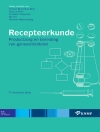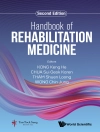Actin is one of the most abundant proteins and ubiquitously expressed in all eukaryotes. In recent years, the analysis of structure and function of such complexes has shed new light on actin’s role in cellular and tissue morphogenesis, locomotion and various forms of intracellular motility, but also on its role in nuclear processes like chromatin architecture and transcription. Progress in understanding these different physiological phenomena, but also in unravelling the basis of actin-based pathophysiological processes has been made by combining video microscopy, molecular biology, genetics and biochemistry. Thus, the current research on actin, as ongoing in many international laboratories, is a ‘hot spot’ in basic and translational research in life sciences. In this book on ‘The Actin Cytoskeleton’, twelve internationally renowned authors present specific chapters that cover their recent work concerned with the various roles of actin mentioned above. This comprehensive volume is therefore an attractive handbook for teachers and students in many fields of medicine and pharmacology.
Cuprins
Functional significance of actin isoforms.- Assembly and maintenance of myofibrils in striated muscle cells.- Myosins: Domain organisation, motor properties, physiological roles and cellular functions.- Actin filament structures in migrating vertebrate cells.- Signalling pathways controlling cellular actin organization.- Actin-based endocytosis.- ADP-ribosylation and cross-linking of actin by bacterial protein toxins.- Common themes in cytoskeletal remodeling by intracellular bacterial effectors.- Viruses that exploit actin-based motility for their replication and spread.- Multiscale view of cytoskeletal mechanoregulation of cell and tissue polarity.- Molecular control of actin dynamics in vivo insights from Drosophila.- From cytoskeleton to gene expression – actin in the nucleus.












